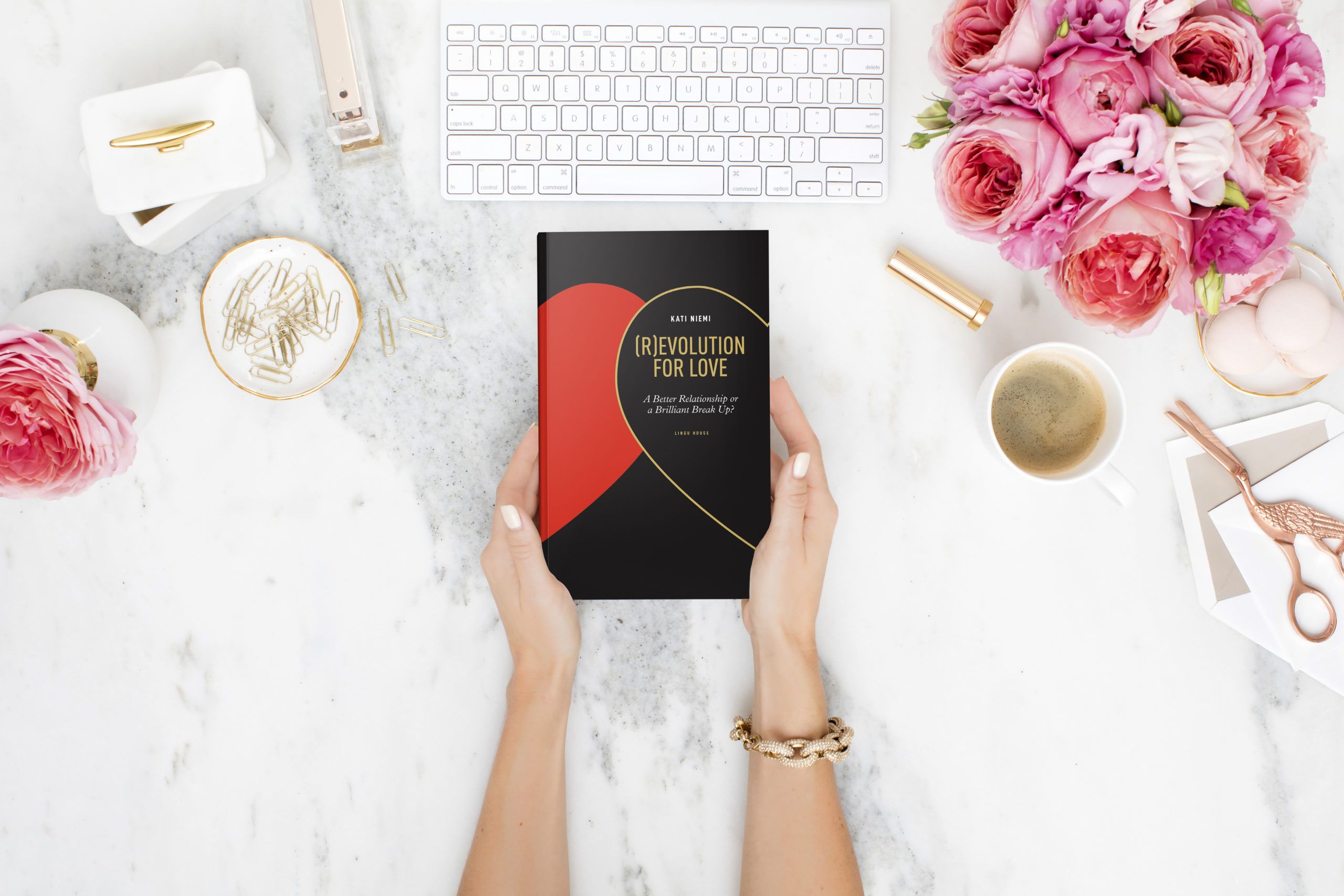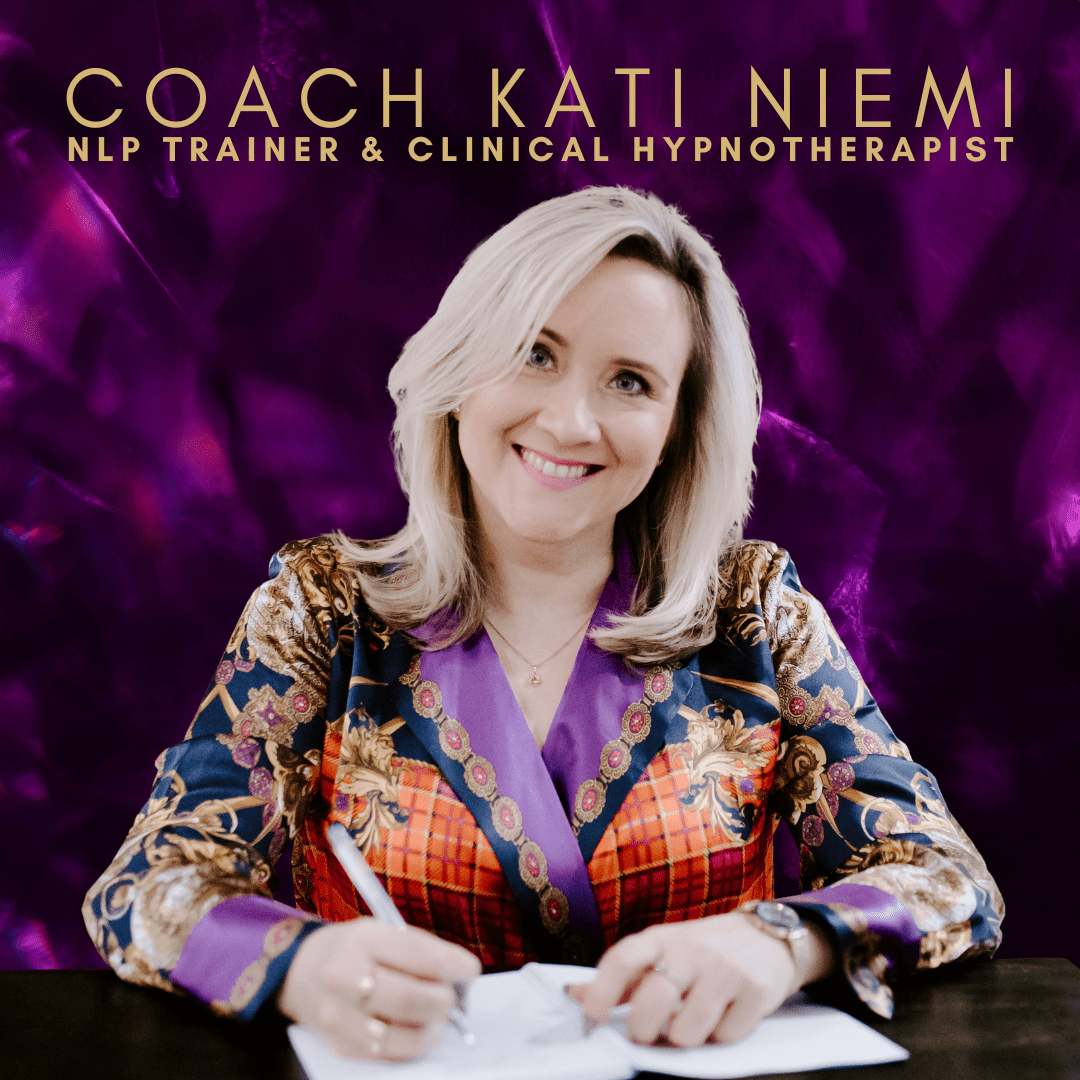What is the one thing that can make sex more pleasurable, help you achieve your goals at work, improve your relationships, keep dating fun, or help you overcome a painful breakup, and spurs you on to live a happier life (in business and pleasure) as you like it? Yes, you already know the answer: stress management.
Keeping stress within reasonable limits is the key to a joyful, energetic, and love-filled life, regardless of your relationship status.
So, which do you prefer: relying on your old habits and continuing suffering from continued stress or learning new stress management methods?
If you want to improve your well-being in hectic everyday life, you want to know which stress management methods are the best to survive the rollercoasters of love or work life and live a happy life.
We all probably have a bundle of coping mechanisms to manage stress, but we can all benefit from learning as many stress management methods as possible.
You probably adopted your stress coping mechanisms decades ago, depending on which stress management methods were deemed valid back then. However, new effective ways have surfaced or gained prominence. Practicing and actively using and updating your stress management repertoire is always a good idea.

How to improve your wellbeing through self-development?
Science has revealed: some adults are not mentally sufficiently developed. How to improve your wellbeing through self-development?
What makes the best stress management methods so effective?
In this post, I will discuss our natural stress responses and methods that take more effort and practice. But with practice, even the learned stress management tools can become second nature and methods you resort to automatically whatever the situation.
Some of the techniques I mention have been known since the beginning of time. Only us living the Western lifestyle have lost the knowledge of how to use these methods.
If you would rather spend the time it takes to read this post on social media or watch Netflix, this article is not for you. It would be best if you were genuinely looking for solutions. Not just another stream of entertainment to numb your stressed-out mind.
When you decide that you no longer want to suffer stress and want to find a way to enjoy life freely, this article is just for you.
So, do you have ten minutes to spare to read till the end of this post?
Great! Let’s start.
Stress management improves well-being in all areas of life
Stress management is a skill. We are born with specific “factory settings,” including several natural stress responses – the good and the bad (read about e.g., excessive cortisol hormone levels and its symptoms).

What Is Cortisol: How High/Low Stress Hormone Levels Function
Cortisol is a stress hormone that affects the body, weight gain, anxiety… How to measure and reduce cortisol levels. (Meaning, Effects)
Stress management is a skill. We are born with specific “factory settings,” including several natural stress responses – the good and the bad (read about e.g., excessive cortisol hormone levels and its symptoms).
Natural stress management tip #1: A method we all know but could do with some practice
The command center for our central nervous system is the brain, which is connected to the peripheral nervous system. The brain produces our thoughts and emotions.
Therefore, it is also the source of our stress, even if we often sense it in the pit of our stomach or a pounding headache. People who have lost a limb can feel pain where the limb used to be. This is the dramatic proof that what we feel is not produced where we think it originates. All emotions are produced in the brain — next door to our thoughts.
If you focus on your pain or any other feeling or sensation, it grows stronger. That’s how our brains behave. It naturally concentrates on what we “feed” to it. Directing our consciousness towards the positive or negative amplifies the positive or negative accordingly.
From this, it follows that the quickest and easiest way to take the edge off stress is to deliberately focus our attention on something naturally relaxing. The closest and best thing to focus on is our breathing.
Concentrating on breathing has a proven biological effect on our bodily and mental states (which, in reality, are inseparable). Besides, controlled breathing is a method we can take everywhere we go!
Breathing exercise for stressful situations
When under stress, we automatically breathe faster because our autonomous, sympathetic nervous system is on full alert. To slow down your breathing and to relax, do this:
- Breathe in, counting to four.
- Hold your breath, counting to four.
- Breathe out very slowly, counting to eight.
In addition to counting, also focus your attention on breathing. Slowing down and holding your breath stimulates the 10th cranial nerve, the vagus nerve, which controls the relaxation of the body. The vagus nerve will automatically relax your body while you concentrate on breathing and slow it down. Natural and easy.
Once you have managed to calm your breathing, continue focusing your attention on your breathing. Picture how fresh oxygen flows through your nose to your lungs and throughout your body from the top of your head to the tip of your toes.
Keep your focus on your breathing and let yourself fall deeper and deeper into relaxation. Continue this exercise until you feel entirely tranquil and relaxed.
Natural stress management tip #2: Adequate sleep
I probably didn’t have to tell you this, yet we forget just how vital good sleep is. Or when we do notice we need to sleep, we can’t. Difficulties to fall and stay asleep are one of the most common symptoms and causes of stress. And the most pointless reason for relationship problems!
The vicious cycle of stress and lack of sleep is the easiest thing to create and a complicated problem to solve unless we take conscious action. If you don’t jump off the rat race, you risk becoming sleep blind. Sometimes the speed is mesmerizing and a positive force – it’s dopamine on a drip that nicely keeps you going. Until you hit the wall.
To learn more about dopamine’s role in human relationships, read this article: Can secret affairs and one-night stands keep your relationship alive?
For more on stress management, read the extensive blog articles about the importance of sleep and treatments for sleeplessness here on (R)evolution for Love.
Natural stress management tip#3: Any form of gentle exercise
Excellent stress busters are exercises that deepen your breathing, allow you to calm down, and let your thoughts flow while raising your heart rate a little. Yoga, tai chi, walking, and other similar outdoor activities offer effective stress relief.
Another superb way to destress is to spend time with kids: play games, make sand cakes, or build a snowman. Aerobic exercise (etc.) is also helpful, as long as you keep it gentle.
Physical exertion uses up the same energy that your brain uses. So destressing is possible only if you keep the overall stress on your body and mind within boundaries.
If your mind is preoccupied with work or relationship worries, don’t add to your burden through a high-intensity sport. If you are too busy and stressed at work and otherwise, minimize your physical stress and skip the boot camp.
However, exercise creates well-being by boosting certain hormones and helping the work of the neurotransmitters. Thus, gentle exercise is highly recommended during the high-stress seasons.
Natural stress management tip #4: Food, drink and other substances
Our central nervous system, which consists of the brain and the spinal cord, controls all our bodily functions and senses. Our brain also controls our digestion and gut. If you are like most people and react to stress through your stomach, the stomach is also what you could focus on in addition to breathing to destress. Pamper your stomach with food that supports its well-being.
If you are stressed and tired, you may unconsciously crave high-carb, sugary foods. They give a momentary feeling of satisfaction, provide a quick energy boost, and help you relax. The operative word here is momentary. The faster and sharper the sugar rush, the more spectacular the crash that follows. Remedying that crash with another unhealthy meal or snack creates a vicious circle.
Eat regularly and choose foods that are good for you. If stressed, don’t add to your burden and abuse your gut with heavy meals. Eat at 3–4-hour intervals and go for foods that suit you.
A lifestyle comprises several elements, and choosing healthy elements will support each other. Therefore, changing one part is enough, and other better habits will follow suit. Clearing out your fridge and cupboards and focusing on healthy foods is the most common first step in becoming healthy. You will find that better nutrition gives you more energy to adopt other stress management methods, too.
Coffee and alcohol may be delightful substances but…
Coffee and alcohol are harmful and sometimes poisonous for a stressed-out physique and psyche. Caffeine and alcohol disrupt the body’s natural functions and disturb sleep for everyone, including those who don’t feel the effects:
- “I sleep well even if I drink coffee.”
- “Nothing sends me to sleep like a couple of glasses of wine in the evening.”
If these people’s functions and sleep quality were measured, both statements would be proven pure fiction. That you are used to something doesn’t mean that it’s good for you. Therefore, using these substances in lesser amounts or giving them up altogether is best. And make sure they are not your go-to remedies when you are stressed.
Nutrition, digestions, and gut health are important for our overall well-being, so giving your diet and lifestyle choices a good hard look is always a good idea.
Natural stress management tip #5: Intimacy and positive energy
A method of relieving stress in which everyone’s a winner is to help others. Focus on doing something good for others and be rewarded by the gratitude shining in the other person’s eyes. Many charities train people with no special qualifications to support people for various causes.
Helping others adds valuable substance to your existence. Research shows that helping others does boost the well-being of the helper. Why do you think I wrote 374 pages for (R)evolution for Love just to talk about breakups and divorce? 🙂
Being present is healing. Surround yourself with people who empower you and support you. Take distance from people who take more energy from you than they give in return. It is not your place to be anyone’s permanent carer in a relationship. Charity should not become a burden, even if you do it from your heart or as a hobby.
We all need – and are allowed to need – intimacy, warmth, caring, nurturing, and affection. If you are not given any and don’t have the opportunity to give anyone any, find an environment where that can happen.
Don’t narrow down your life just because the people around you are like the walking dead.
You deserve better than that. Much better.
To enjoy your life and its positive changes, choose in your closest circle of friends and as your partner, people who make you laugh, feel joy, and bring the best out of yourself. You know how physical touch, massage, and gentle caresses are proven to be beneficial even in the cold light of science.
Sex and intimacy, in general, are also highly important for our physical and mental health. Create a life that you can share with people who genuinely enrich it – partners or friends. Don’t settle for anything less.
And when it comes to intimacy and joy, give as good as you get – be generous with your positive warmth with your loved ones and other people. Spreading happiness is a surefire way of naturally surrounding yourself with positive energy.
Share the (R)evolution for Love posts that resonate with you and contribute to improving the mindset in your environment in a more loving and energetic direction.
Make a conscious and regular use of your natural and learned stress management tools.
In the above, we discussed some of the natural stress management tools that we all possess. Sometimes we must pay more attention to them and remind ourselves how they work. In addition to the natural methods, learning to utilize other stress management methods takes practice and effort. But it’s always good to learn something new!
Any positive or negative turn of events can cause us stress. What matters is the capacity of our resources and our interpretation of the severity of that stress. When in a stressful situation, we tend to forget the valuable stress management skills we have. Write yourself a complete list of all the good stress management skills you already master to remind you of them when you need them the most. Refer to the list and see what would work for you in a particular situation. The quicker you can guide your mind away from the state of full alert, the better.
Choose the natural methods that come naturally and easily for you. Then add to your list of stress management skills that take learning and practice. The following are some of the best ones.
Conscious stress management tip #1: Amplify your positive thoughts and emotions
When you have managed to bring your stress enough to have the energy to do something apart from lying down and breathing (which is the best thing to do in acute panic and anxiety!), remind yourself of things that you enjoy:
- What are the experiences you have enjoyed in recent years? What about when you were a child? In your teens?
- What activities, events, and encounters made you laugh or smile?
- With whom can you relax and feel accepted?
- Who are those people who expect nothing from you other than to be who you are? Without such people, you can be that person to yourself.
Think about something you didn’t know how to do in the past but can do now. Notice how many small and big things you have accomplished over decades.
Close your eyes and focus on your breathing. Let your mind slowly go to that lovely moment when your life felt warm and bright. Rest and enjoy. Let yourself be empowered.
Stress management will become easier after you have practiced amplifying your positive thoughts and pleasurable sensations through the techniques described below.
Conscious stress management tip #2: Actualise the images of good moments in your daily life
Make the good moments you are thinking of part of your daily life. Be active, exercise, go to movies, theatre, museums, dance, and sing. Go and listen to your local choir perform.
Instead of eating at home alone, go to your local cafe or restaurant and have a healthy meal while surrounded by other people.
Walk all short distances and look up when you walk: a better posture is a surprisingly effective way of lifting your mood. Take your eyes off the ground and stop staring at your shoes. A more positive body language supports a more positive mind.
When taking a walk or running, listen to audiobooks (e.g., The (R)evolution for Love book for free here) and Spotify podcasts for positive inspiration 🙂
Reading or concentrating on a jigsaw puzzle or crafts are also superb destressing methods.
And how about natural hypnosis?
When you understand how to use natural hypnosis to destress and add substance to your life, you will also realize that we are in a natural state of hypnosis in the morning and evening when our subconscious is more open to positive suggestions.
Therefore it would be helpful to think about three pleasant things or goals for your day as soon as you wake up and, in the evening, before going to sleep, about three things you are grateful for.
This is a fundamental trick in positive thinking and is most effective during complete relaxation in the mornings and evenings. Against this background, the tradition of saying evening prayers and reading bedtime stories makes a lot of sense!
One interesting topic in stress management is hypnotherapy through varied visualization techniques.
Conscious stress management tip #3: Purposeful discussion with a friend or a coach.
A problem shared is a problem halved, they say. This is absolutely true. If nothing else, verbalizing your thoughts may reveal how unfounded your thoughts are and not worth the stress! A good friend knows when to challenge your beliefs gently 🙂
However, our problems originate in a certain environment in which our friends also form a part. Therefore, talking to someone not part of the context, a professional, can be helpful.
However, sometimes friends may only exacerbate each other’s negative thoughts as they take turns complaining about their unhappiness and problems.
Theoretically, peer support might be beneficial. Indeed, seeing that your friend is not having it any easier is helpful. But does joining forces to mull over your misfortunes help either one move forward?
It is not always the best idea to resolve problems in the context they appear.
If you focus on your negative thoughts by constantly talking about them, your focus may only help your problems gain a more significant foothold in your mind. Discussion is an effective way to manage stress and improve your well-being.
Choose a suitably challenging but supportive coach or therapist and make regular appointments. A professional can stop your negative thought spiral gently and constructively while boldly challenging your restrictive beliefs. You think a certain way, and those thoughts make you feel miserable. But you do know, don’t you, that those thoughts are not necessarily true.
As a clinical hypnotherapist and accredited NLP Trainer, my approach is gentle, firm, and, therefore, effective. Contact me if you want me to help you resolve some of your issues.
Conscious stress management tip #4: Detoxing your thoughts with multiple Mindshifting Methods
Sometimes there is no time or opportunity to talk to a coach or friend. It is possible to stop negative thought spirals by yourself. For example, if a negative thought takes over your mind, stop it by consciously diverting your focus to your left big toe or how the skin beneath it when you jump up and down. Use your imagination!
You can also e.g., rotate your arms and laugh as you repeat a completely neutral, arbitrary word such as “random”. Change your voice to sound like Donald Duck and keep repeating “random, random, random…”!
If fooling around like this does not yank your mind out of a negative spiral, say your thoughts out loud using the Donald Duck voice or any other silly voice that will make your inner critic sound so ridiculous that you can’t take it seriously.
Disrupt the loop of your thoughts with whatever it takes. Another way to distract your negative thoughts is to think e.g., about your mother’s name or what you had for breakfast the day before yesterday, as soon as negative thoughts start flooding your mind.
The point is to disrupt the flow of negative means with whatever practical act that has nothing to do with your thoughts. Making your thoughts sound idiotic and ludicrous, unbearably stupid, is the most effective way to stop whinging.
…Provided you want to avoid listening to your negative inner critic trying to spoil your mood by going on and on with their negative message! 🙂
If worries seem to be taking you over no matter what, give yourself a 30-minute “thought detox”. It is one example of the various interesting mindshifting exercises by which you can stop negative thoughts from running away with you. If you’re new to Mindshifting Methods, please book a video call with me first.
The purpose of life is not to be free of worries and concerns. But nor is its purpose to spend all day worrying. Book yourself a specific “worry time.” So when during the day a negative thought of worry comes to mind, write it down or make a note on your phone to be processed during your worry time. Then when the scheduled worry time begins, you can take out your list of all the things you decided to think about during your “not-so-happy hour.”
Despite the many methods you use during your thought detox, routine and persistence are critical in stress management. You will gradually learn to divert your negative thoughts as soon as they appear on the worry list, and maybe eventually, you don’t even have to have the actual worry time.
Conscious stress management tip #5: Time management and priorities that reflect your values
Value-based stress management requires conscious time management. Remove time thieves from your diary and daily life. Spend time and direct your attention to the natural stress management methods discussed above. Once you have gained control of your stress, take another look at how you use your time. But remember that at the moment of acute stress, focus only on what is important: natural stress management.
If you feel anxious or depressed, have plenty of rest but don’t disappear into the sofa staring at the TV or smart device screen. In reality, they are not relaxing and will not aid your ability to fall asleep or good-quality restorative sleep that helps you wake up refreshed. In a stressful life situation, replenish your resources through rest and a healthy diet and spend time on making basic stress management skills part of your routine. Focus on breathing and positive thoughts. Manage your time by removing all unnecessary time fillers and focusing on the essentials.
Stress management is a skill that anyone can and should practice. Few of us were taught as children how to manage our thoughts consciously or to master varied stress management skills. Your well-being should be a top priority, so make time to practice stress management.
You are likely to spend a large chunk of your waking hours at work. Having a clear mind will help you find a career you enjoy and which feels meaningful. If you don’t know what you want, how do you know when to say no? If your job constantly stresses you out, consider making a change. You can always change your position, team, or career. Always. Whatever the situation.
Don’t be a slave to money and routines.
We live in a world of billions of people who are increasingly connected thanks to technology and networks. There is always an alternative.

Online Coaching
Happy to help you! Welcome to book your online coaching session with the certified Coach, NLP Trainer, and Clinical Hypnotherapist Kati Niemi! Please select your
Remote work can bring good flexibility to your schedules, or sometimes it may bring even more stress being with your spouse, kids, and pets all the time and surrounded by housework and other to-dos.
Obsessive cleaning and organizing can be a sign of stress in itself. However, household chores can also be utilized as a stress management tool without the drama and having to go overboard.
Make effective stress management and mindshifting a routine: mindfulness, meditation, tantra, self-hypnosis, and hypnotherapy
You have probably heard or read about mindfulness. But have you consciously worked on this new fashionable method, which is possibly the oldest and most traditional of all stress management tools? Mindfulness is a widely marketed “new” term. However, it is one of the mindshifting tools for mind control and stress management that we have always had. And there are many other exciting methods for us mindshifters to learn and practice.
We in the West have not learned as children to use our existing skills and resources as natural stress management methods. This is why people in Western cultures choose to suffer from stress rather than utilize the techniques that we have and that have worked throughout our existence as a species.
If you decided that you no longer want to suffer the stress and want to find a way to enjoy life freely, which skill will you start with?
Happy to hear from you!
With Love
Your Coach Kati
Clinical Hypnotherapist, NLP Trainer, MSc., Author, Blogger
[email protected]

“FIVE STARS!” Book reviews: (R)evolution for Love (Amazon Books)
“Five Stars!” Editorial reviews and reader reviews of (R)evolution for Love – A Better Relationship or a Brilliant Break Up? Amazon books

Be aware of the impact of stress on your relationship
Stress symptoms and the impact of stress. If you have to manage you partner’s stress, yours is not a love but a care relationship.

FEEDBACK TO LOVE! Reader reviews (Book+Blog)
RELATIONSHIP GUIDE: BOOK REVIEWS – We are blown over by the feedback the (R)evolution for Love relationship blog and guide have received. WOW!

FREE AUDIOBOOK: Audible, Google Play and other stores’ free trial
Audiobook lovers benefit from FREE trial periods of book stores. Enjoy (R)evolution for Love on Amazon Audible, Google Play & other stores

FREE EBOOK ‘I love you but…’ – To Break Up or Not to Break Up?
Refocus your energy now to improve your love life! This FREE ebook ‘I love you but…’ will help you move towards a better relationship or

How to improve your wellbeing through self-development?
Science has revealed: some adults are not mentally sufficiently developed. How to improve your wellbeing through self-development?

What Is Cortisol: How High/Low Stress Hormone Levels Function
Cortisol is a stress hormone that affects the body, weight gain, anxiety… How to measure and reduce cortisol levels. (Meaning, Effects)

Why does our conscious mind question the power of the unconscious mind?
Is the power of the unconscious mind fake news and is trying to harness it to achieve our full potential a waste of time? What do we mean by the unconscious mind?

INFIDELITY and the collected excuses: The good reasons for cheating
CHEATING: What is a good reason to cheat? What do the cheated partner, “the other woman/man” or the cheater choose to believe in?

What is an open relationship? Does it lead to breaking up?
What is an open relationship? Who are non-monogamous open relationships for? Is your partner suggesting consensual non-monogamy?

Narcissism in a Relationship: “How to Know if My Partner Is a Narcissist?”
What are the signs and causes of narcissism? Can you make a relationship with a narcissist work? Can you heal a narcissistic partner?

Aromatherapy for Libido & Romance – The Best Essential Oils for Love
Sense of smell influences our sexual desire and performance. Aromatherapy tips and the best essential oils for romance, libido, sex and love.

When positive thinking becomes toxic
What is too positive thinking like? Where should we focus the power of our mind and our willpower?

TO BREAK UP OR NOT TO BREAK UP? Should I stay or should I go?
How do you know if you should leave or not. How to make the decision to break up or to improve your relationship? To break up or not?




























